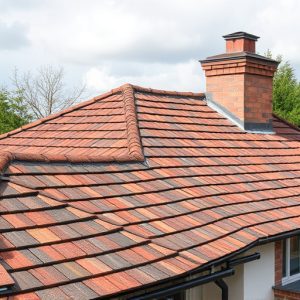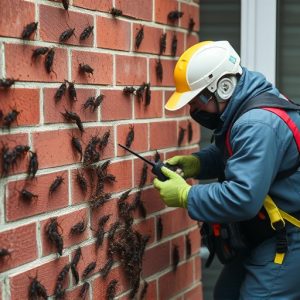Secure Your Home: The Advantages of Licensed and Insured Roofing Contractors
When considering a roofing project for your home or business, it's essential to prioritize hir…….

When considering a roofing project for your home or business, it's essential to prioritize hiring licensed and insured professionals to ensure high-quality workmanship that aligns with industry standards. These experts have undergone extensive training, proven their competence, and are well-versed in contemporary roofing technologies, local building codes, and safety measures. Their licenses reflect a deep understanding of the craft, while their insurance safeguards your property from potential damage or injury to workers during repairs. This dual assurance provides peace of mind that your investment is secure and the work will be performed to professional standards. Always verify a roofing contractor's legal credentials and insurance status before commencing any project to ensure compliance with local laws, maintain project quality, and safeguard against legal complications. A reputable roofing contractor should also be affiliated with professional associations like the National Roofing Contractors Association (NRCA), which upholds high standards of excellence within the industry. This endorsement ensures that the contractor has met rigorous benchmarks of quality and reliability, ultimately safeguarding one of your most valuable assets.
When faced with roofing needs, the assurance of working with licensed and insured professionals is paramount. This article delves into the critical aspects of hiring qualified roofing contractors, emphasizing the legal requirements for their licensing, the importance of understanding insurance coverage for roofing projects, and the steps to verify a contractor’s credentials. Explore how professional associations aid in evaluating these experts and the benefits of entrusting your home’s safety and integrity to certified roofing professionals. Ensuring peace of mind in every shingle placed, this guide is your compass to making an informed choice in roofing services.
- Understanding the Importance of Licensed and Insured Roofing Contractors
- The Legal Requirements for Roofing Contractors: Licensing Explained
- Insurance Coverage for Roofing Projects: What Homeowners Should Know
- Verifying Credentials: How to Check a Roofing Contractor's License and Insurance
- The Role of Professional Associations in Roofing Contractor Evaluation
- Benefits of Working with Certified Roofing Professionals for Your Home's Safety and Integrity
Understanding the Importance of Licensed and Insured Roofing Contractors

When faced with roofing issues or the need for repairs, homeowners are often advised to prioritize hiring licensed and insured roofing contractors. These professionals not only possess the necessary expertise to address a range of roofing concerns but also adhere to industry standards and regulations, ensuring the integrity of the workmanship. A licensed roofer has undergone rigorous training and examination processes, verifying their proficiency in the field. This licensing serves as a testament to their knowledge of current roofing technologies, local building codes, and safety protocols. It’s not merely a formality but a safeguard for homeowners who can rest easier knowing their property is in capable hands that have demonstrated compliance with state or regional requirements.
In addition to the assurance of competence, opting for insured roofing contractors provides an additional layer of protection. Accidents and unforeseen events are an inherent part of construction work. With insurance coverage, homeowners can be compensated in the event that the work results in property damage or if a worker is injured on the job. This financial safety net protects both the homeowner and the contractor, as it mitigates the risk of costly repairs resulting from subpar work or the legal implications of uninsured incidents. By choosing roofing contractors who are both licensed and insured, property owners can have peace of mind, confident that their roofing project will be completed to a high standard with adequate protection against potential liabilities.
The Legal Requirements for Roofing Contractors: Licensing Explained

When engaging a roofing contractor for your home improvement projects, it’s imperative to verify their legal standing. Licensed roofers have undergone rigorous training and adhere to industry standards and regulations, ensuring they possess the necessary skills and knowledge to safely and effectively carry out roofing work. In many regions, local laws mandate that roofing contractors hold a valid license to legally operate within municipal boundaries. This licensing process often includes proof of experience, successful completion of a trade exam, and an understanding of current building codes and safety standards. It also signifies a commitment to ethical business practices and consumer protection. Moreover, insurance is equally critical as it safeguards both the homeowner and the contractor against unforeseen events during the roofing project. This coverage typically includes general liability insurance, which can mitigate the risks of property damage or injuries on the job site. Ensuring that your chosen roofer has both a valid license and adequate insurance coverage is essential for peace of mind and guarantees that the work conducted on your property will be up to code and handled professionally. Homeowners should always request proof of licensing and insurance before any work commences to avoid potential legal issues and ensure the quality and safety of their roofing project.
Insurance Coverage for Roofing Projects: What Homeowners Should Know

When engaging a roofing contractor for your home’s roofing project, it’s crucial to understand the extent and implications of their insurance coverage. A comprehensive insurance policy not only safeguards the contractor against unforeseen events but also provides an additional layer of protection for you as the homeowner. Typically, a reliable roofing contractor should have two main types of insurance: general liability insurance and workers’ compensation insurance. General liability insurance covers damages to your property or injuries to third parties that may occur during the roofing project. It ensures that any accidental damage to your home or its surroundings is covered, alleviating the financial burden that could otherwise fall on you. Additionally, workers’ compensation insurance is vital because it covers injuries to the contractor’s employees while they are working on your property. This means that should an accident happen, the healthcare costs and any legal implications are managed by the contractor’s policy, not yours. Always verify the coverage limits and ensure that the contractor’s insurance is up-to-date before proceeding with the project. This due diligence can save you from potential financial and legal complications, offering peace of mind as your roofing project moves forward.
Verifying Credentials: How to Check a Roofing Contractor's License and Insurance

When selecting a roofing contractor, it’s imperative to ensure that they possess valid licenses and insurance coverage. This due diligence safeguards both your property and financial investment. To verify a roofing contractor’s license, start by checking with your state or local licensing board. These entities maintain databases of active licenses, enabling you to confirm the contractor’s legal authorization to perform roofing work in your area. Look up their business name and license number to ensure it’s current and without any disciplinary actions on record.
In parallel with license verification, assessing the contractor’s insurance is equally crucial. Adequate insurance safeguards you against potential liability for injuries or damages that may occur during the roofing project. Request copies of their insurance certificates, including general liability coverage and workers’ compensation insurance. These documents should clearly state the coverage limits and who is covered. By taking these proactive steps to check a roofing contractor’s license and insurance, you can approach your roofing project with greater peace of mind, knowing that your investment is protected and your project is in compliant, competent hands.
The Role of Professional Associations in Roofing Contractor Evaluation

When homeowners consider a roofing contractor for their residential or commercial property, the credibility and professionalism of the service provider are paramount. Professional associations play a pivotal role in evaluating and certifying these contractors. These organizations, such as the National Roofing Contractors Association (NRCA) in the United States, set stringent standards that members must adhere to. This includes compliance with local building codes, adherence to best practices in roofing installations and repairs, and a commitment to continuous education and training. Membership in these associations often requires proof of insurance, licensing, and a history of quality workmanship, which serves as a reliable indicator of a contractor’s reliability and skill. By vetting candidates through these measures, professional associations help homeowners navigate the roofing market confidently, ensuring they engage with contractors who uphold high-quality and ethical standards in their craft. This pre-screening process by professional associations is invaluable for those seeking peace of mind when it comes to safeguarding one of their most valuable assets—their property’s roof.
Benefits of Working with Certified Roofing Professionals for Your Home's Safety and Integrity

When it comes to safeguarding your home, partnering with certified roofing professionals is a prudent choice. These experts undergo rigorous training and adhere to industry standards, ensuring that your roof is not just repaired or installed correctly but also optimized for longevity and performance. Their knowledge of the latest roofing materials and techniques means your home’s safety and integrity are prioritized with advanced solutions tailored to your specific needs. Certification often requires passing stringent tests, which guarantees a certain level of skill and professionalism. This expertise translates into meticulous workmanship, attention to detail, and the use of high-quality materials that can withstand various environmental stressors. By choosing certified professionals, homeowners can rest assured that their roofing project will be executed with precision, enhancing both the structural stability and value of their property. Moreover, their commitment to adhering to local building codes and obtaining necessary permits protects your investment and provides a defense against potential legal issues arising from subpar workmanship or non-compliance with regulations. With certified roofing professionals, peace of mind is not just a promise—it’s a standard upheld by their dedication to excellence and adherence to the highest professional standards in the roofing industry.
When it comes to safeguarding your home, particularly its most critical component—the roof—collaborating with licensed and insured roofing contractors is non-negotiable. The article has elucidated the significance of these professionals, from their legal standing and insurance coverage to the peace of mind they offer. Homeowners must prioritize verifying credentials to ensure the integrity and longevity of their roofing systems. Professional associations further facilitate the vetting process, highlighting reputable contractors who commit to upholding high standards in roofing workmanship. In the final analysis, investing in certified roofing experts translates to robust protection for your property, underscoring the importance of due diligence when selecting a roofing contractor.







